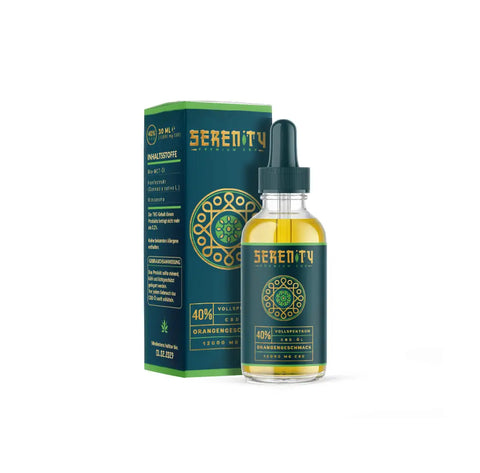Parkinson's disease is a neurodegenerative disorder that affects millions of people worldwide. It is characterized by the degeneration of dopamine-producing neurons in the brain, which leads to a wide range of symptoms, including tremors, rigidity, and difficulty with movement. While there is no known cure for Parkinson's disease, there are a variety of treatments available to help manage its symptoms.
One potential treatment that has gained a lot of attention in recent years is cannabis. Cannabis contains a variety of compounds, including cannabidiol (CBD) and tetrahydrocannabinol (THC), which have been shown to have potential therapeutic benefits for Parkinson's disease patients. In this article, we'll take a closer look at what you need to know about Parkinson's disease and cannabis.
The Science Behind Cannabis and Parkinson's Disease
Research into the use of cannabis for Parkinson's disease is still in its early stages. However, some studies have suggested that cannabis may be able to help manage certain symptoms of Parkinson's disease, such as tremors and sleep disturbances.
One study published in the Journal of Psychopharmacology found that cannabis was able to significantly improve tremors, rigidity, and bradykinesia (slowness of movement) in Parkinson's disease patients. Another study published in the Journal of Clinical Psychopharmacology found that cannabis was able to improve sleep quality in Parkinson's disease patients.
Types of Cannabis Products
There are a variety of cannabis products available, each with its own unique characteristics. Some of the most common types of cannabis products include:
-
CBD oil: CBD oil is a popular cannabis product that contains high levels of CBD and low levels of THC. It is believed to have potential therapeutic benefits for a wide range of conditions, including Parkinson's disease.
-
Full-spectrum CBD oil: Full-spectrum CBD oil contains a range of cannabinoids, including THC, which may offer additional therapeutic benefits for Parkinson's disease patients.
-
THC-free CBD oil: THC-free CBD oil is a good option for Parkinson's disease patients who want to avoid the psychoactive effects of THC.
-
CBD capsules: CBD capsules are a convenient way to consume CBD oil.
-
CBD topicals: CBD topicals, such as creams and lotions, are applied directly to the skin and may help manage localized symptoms of Parkinson's disease, such as muscle stiffness.
Serenity 40% Full Spectrum CBD oil
How to Use Cannabis for Parkinson's Disease
If you're considering using cannabis to manage your Parkinson's disease symptoms, it's important to speak with your healthcare provider first. They can help you determine whether cannabis is a good option for you and can provide guidance on dosing and potential side effects.
When using cannabis for Parkinson's disease, it's important to start with a low dose and gradually increase it over time. This can help you avoid potential side effects, such as dizziness and nausea.
Conclusion
While research into the use of cannabis for Parkinson's disease is still in its early stages, there is some evidence to suggest that it may be able to help manage certain symptoms of the disease. If you're considering using cannabis to manage your Parkinson's disease symptoms, be sure to speak with your healthcare provider first to determine whether it's a good option for you. With the right guidance, cannabis may be able to offer relief for Parkinson's disease patients.
Frequently asked questions
Q: Can cannabis cure Parkinson's disease? A: Currently, there is no known cure for Parkinson's disease. While some studies have shown that cannabis may have neuroprotective properties and could potentially slow down the progression of the disease, it is not a cure.
Q: Is cannabis an effective treatment for Parkinson's symptoms? A: Some people with Parkinson's disease have reported improvement in their symptoms, such as tremors, stiffness, and sleep disturbances, with the use of cannabis. However, more research is needed to determine the effectiveness and safety of cannabis as a treatment for Parkinson's disease.
Q: Is it legal to use cannabis for Parkinson's disease? A: The legality of using cannabis for medical purposes varies by country and state. In some places, it may be legal with a doctor's recommendation, while in others, it may not be legal at all. It is important to research and understand the laws in your specific location.
Q: What are the potential side effects of using cannabis for Parkinson's disease? A: Some potential side effects of using cannabis may include dizziness, dry mouth, impaired coordination, and changes in mood or appetite. It is important to discuss the potential risks and benefits of using cannabis with a healthcare provider.
Q: What is the recommended dosage of cannabis for Parkinson's disease? A: There is no one-size-fits-all recommendation for the dosage of cannabis for Parkinson's disease, as it can vary depending on the individual's specific condition, tolerance, and other factors. It is important to start with a low dosage and gradually increase it under the guidance of a healthcare provider.
Q: Can I use cannabis alongside other Parkinson's disease medications? A: It is important to discuss the use of cannabis with a healthcare provider, as it may interact with other medications used to treat Parkinson's disease. It is important to understand the potential risks and benefits of using cannabis in combination with other medications.
I hope these FAQs provide some helpful information for those considering the use of cannabis for Parkinson's disease.
kindly yours
iCana team

Sources:


1 comentario
Very informative article